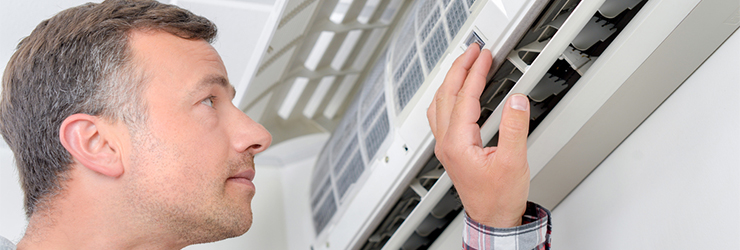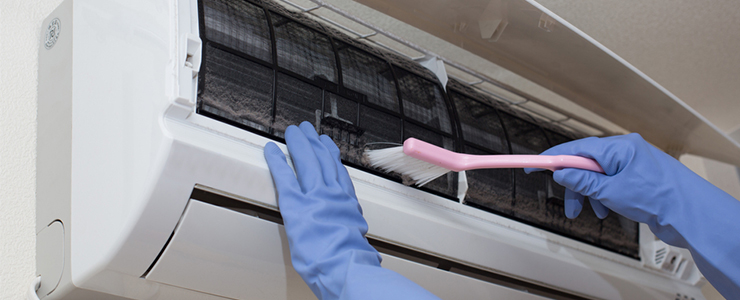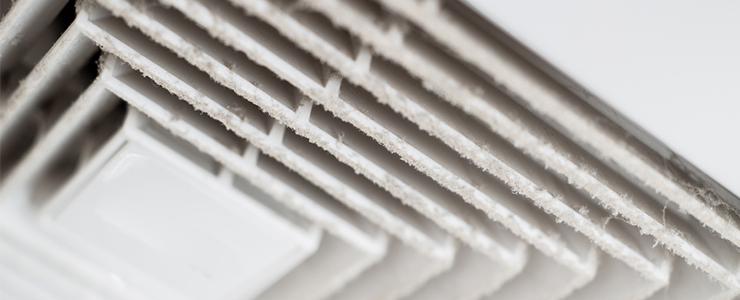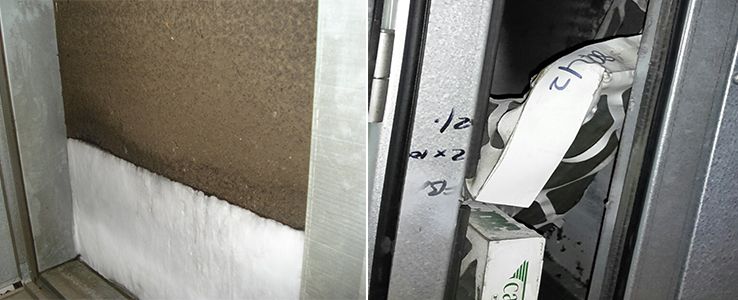Call us on 01282 863825

Now that summer is on the horizon and the climate is heating up, you may already be starting to turn your air conditioning back on. But it’s quite possible that when you do so, you detect an odd or unpleasant smell coming from it. Don’t panic, as it’s not immediately dangerous. In the long run the underlying causes can cause adverse health effects though, so it’s definitely worth getting it serviced.
Put simply, it’s likely that in some way your air con’s problem has arisen to leftover debris in its system from last summer, becoming home to a buildup of bacteria building the meantime. Here are some of the most common problems you can solve by getting your air conditioning unit serviced.

This is the most widespread problem you may find yourself with after turning your air conditioning unit back on for the summer. It’s been described variously as different things – stale, musty, even a “damp sock” smell. You’ll know it when you experience it!
Apart from the smell, other signs include:
What’s happening?
Basically, your evaporator coils turn cooling chemicals from liquid to gas. As warm air passes over them, condensation occurs, and if they’re not sufficiently clean this can provide the ideal breeding ground for germs and bacteria. Mould can also grow quickly in these conditions, creating the source of most unpleasant smells.

This is a fairly easy issue to detect, and another common source of smells or reduced efficiency in your unit. As we’ve mentioned before, reduced efficiency means that not only is it less effective, but it can lead to increased energy bills.
Signs include:
What’s happening?
Mould can be due to a number of factors, including high indoor humidity levels and leaks from elsewhere in the air ducts. It’s also possible that the mould has spread from another nearby source. When dealing with it, your Askews engineer will always identify the source of this mould, tackling the cause rather than just the symptom.

The condensate line is a major part of any air conditioning unit’s internal workings, so if it’s clogged it can damage the effectiveness of the entire system.
Signs include:
What’s happening?
The drain line is designed to catch and channel away the condensation that drips from your evaporator coils. However, if there’s any dust or debris around or inside it, it’s possible for the water to build up. Standing tepid water is a perfect breeding ground for bacteria, which can then quickly lead to other problems inside your unit. Some systems have a safety switch that shuts them off if the drain pan overflows, which could explain any sudden shutdowns.
Almost any problem can be quickly handled with a simple routine air conditioning maintenance, which is something we excel at here at Askews. Our highly trained engineers are capable of identifying and solving all the above issues, and many more besides. Though not immediately threatening, over time these problems have the potential to affect your health and that of your employees, so it’s imperative to deal with them promptly.
Click here for a free quote, or call us on 01282 863 825 to book a service of your air conditioning system, so your workplace can be truly ready for summer.
Don’t forget to follow us on Twitter: @AskewsLtd